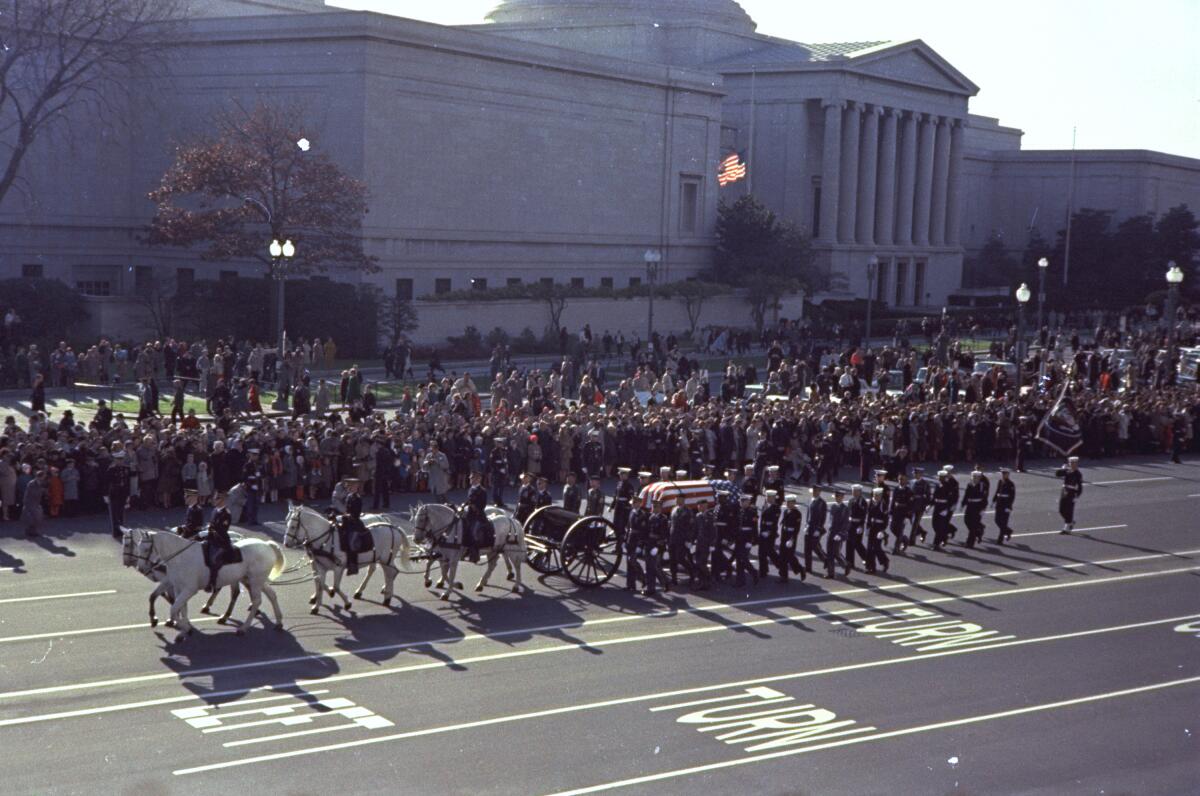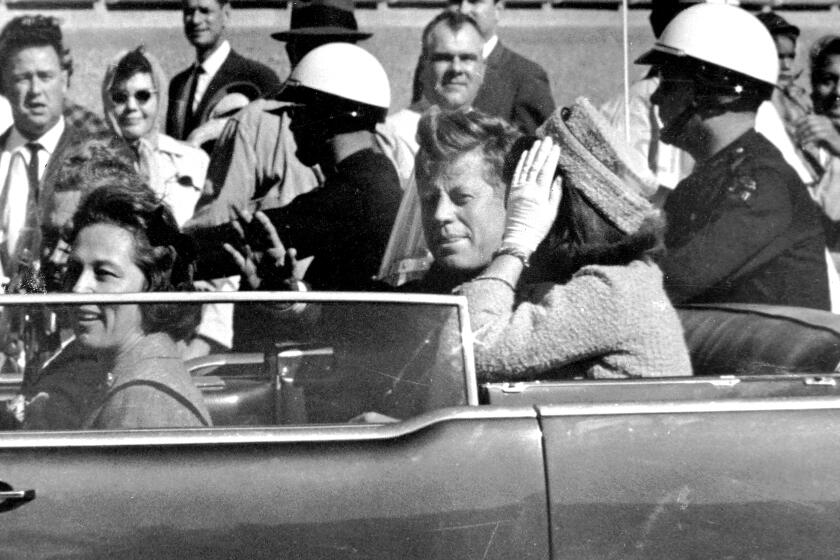We were one nation, united in mourning, when President Kennedy died. Not anymore

- Share via
I went to John F. Kennedy’s funeral parade. My father was a lawyer and had an office that looked out on the route. We arrived early in the morning, and my mother spread a blanket on the carpet for us to sit on. My sister and I ate fried egg sandwiches wrapped in white paper from the corner deli where the man knew my father’s name. Hey Art, he said, this your family?
I’d never had a breakfast sandwich, never had an indoor picnic, had only been to my father’s office maybe twice before. I was excited. I expected a marching band and majorettes. Did I have the day off from school? I think so.
The book on the Kennedy assassination refuses to stay closed, and three documentaries timed to the current anniversary help expand, or reframe, our understanding.
As we watched out the window, people began to line the street. Many, many people, all ages, all ethnicities. I remember a Black girl around my age dressed as if for church, hopping up and down to stay warm. It was winter in Washington, D.C. Everyone was bundled up, and I see it in my memory like a black and white photo: dark overcoats, hats and scarves and gloves, all in shades of gray and black. Appropriately.
There were no majorettes, of course. This wasn’t going to be a parade with flag-waving and cotton candy. Instead my mother called it a procession, a funeral procession. There were bands; I don’t know what music they played. I remember the wagon carrying the coffin covered with an American flag. I remember the saddled and riderless horse with the big black boots stuck backwards in the stirrups. I remember my mother crying and my dad with his arm around her.
When we left to go home, the elevator operator, a Black man not much taller than me, was crying too. And when we got home, our neighbor, Mr. Turner, a die-hard Republican conservative, was sitting outside on his front step shaking his head. I knew — from listening to my parents — that he didn’t vote for Kennedy, but that day all of America was grieving.
I grew up proud to be American. Of course there were issues. My parents complained about plenty. Just three months before Kennedy’s funeral, we went to the March on Washington and listened to Martin Luther King Jr.’s dream of equality. Angry discussions around the dinner table — about civil rights, women’s rights, jobs, healthcare — happened nightly.
Coverage of the Kennedy assassination 60 years ago changed the course of TV news and shaped the careers of some of America’s best known journalists.
But I didn’t want to be in any other country. My father fought in World War II. We stood up against authoritarianism, and I thought we had made America a place for every kind of person, religion, ancestry. As a young woman I was sure this country would always be that shining city on a hill — a biblical reference used by Kennedy, Reagan and Obama, a beacon to the rest of the world.
Sixty years later the shining city is tarnished. The light is diminished, strained through hate and division and fear. We experience little in common except the death of cooperation, compromise and any hope for shared values. When former First Lady Rosalynn Carter entered hospice care, the Republican presidential front-runner mocked her husband, President Jimmy Carter. Rosalynn will be buried on Wednesday, after a memorial service, a funeral and hours lying “in repose” at the Jimmy Carter Presidential Library and Museum. Her casket will follow a publicized route from Atlanta to Plains, Ga. I can’t help but think about who will line the streets and roads. I worry; it seems like an excellent opportunity for a mass shooting.
Our democracy is failing. I am watching it happen. Now I mourn with my children, not for one man or one woman, but for our entire country.
Diana Wagman, a contributing writer to Opinion, is the author of six novels.
More to Read
A cure for the common opinion
Get thought-provoking perspectives with our weekly newsletter.
You may occasionally receive promotional content from the Los Angeles Times.











